A while ago, a former elected official shared with me a vivid memory from a previous round of redistricting. One of his colleagues walked into a closed-door gerrymandering meeting with a legal-pad list of addresses he wanted drawn out of his district. They were for residences of people this elected official feared might run against him. He quite literally was erasing his potential competition and ensuring he coasted to re-election.
I remember that story now whenever I hear a Democrat tell me they don’t want to “disarm” or quit gerrymandering unless every other state in the nation does the same.
I understand the hesitation, especially at a time when Republicans in many other states did an exceptional job of gerrymandering, but what that lawmaker did with his list of drawn-out foes probably happens frequently. It’s simply wrong every time. It’s cheating.
And when Democrats allow cheating, they’re just as wrong as when Republicans cheat by gerrymandering or by enacting modern-day poll taxes to stop people from voting.
In introducing the Fair Maps Amendment (SJRCA 18/HJRCA 41) last week, chief sponsor state Sen. Melinda Bush, a suburban Democrat, said, “Gerrymandering is ruining our democracy. The power of gerrymandering can’t be overstated. Unfair maps only benefit the party in power and strips the minority party of any agency.”
As state Rep. Kelly Cassidy, a Chicago Democrat, put it, “This is not a place for “To the victor go the spoils.’ The party that wins shouldn’t then be able to keep pushing that envelope.”
I hear that “We can’t disarm,” argument frequently. And yet, citizens in 18 other states around the country have disarmed. They’ve changed the way they do redistricting by adding citizen commissions or otherwise boosting the transparency and accountability in their processes.
Take California. A citizen’s commission drew their maps after the 2010 census. Some members of the public were not happy with the first maps released and let the commissioners hear about it. The commissioners went back and redrew some lines. There were lawsuits, but the commission’s work prevailed. The result?
There was no wholesale political sea change. Democrats increased their numbers in the California Senate by four percentage points and in the House by five percentage points. Nine more people of color also were elected than had been when politicians drew the maps.
What also happened was that every meeting of the commission was held in public. I’ve got to believe Californians’ faith in their government started to be restored just a bit, too.
They’re creating a commission in nearby Michigan and are changing redistricting processes in Missouri and Ohio, too, all states where Republicans are in the majority in the statehouses.
Since the new Fair Maps Amendment was introduced recently, there also has been a comment or two about the restrictions on who can serve. In a state known for corruption and nepotism, it’s critical that politicians, their families, those who work for elected officials and those who make money from government work stay out of the drawing of maps.
When politicians protect themselves by drawing their own districts, that’s the epitome of a conflict of interest and we ought to be doing all we can to end those kinds of conflicts in Illinois.
“When legislators pick their own constituents,” state Sen. Dan McConchie, a suburban Republican said last week, “… We end up in a circumstance where it is natural for many members of the General Assembly, as well as others in other units of government, to act outside of what is appropriate and proper.”
When politicians draw their own districts, they worry mostly about primary challenges and tend to make decisions designed to appeal to the extremes of their party rather than decisions that reflect what most of their constituents want.
After all, when you literally can draw your opponents out of your way, why would you even need to bother listening to the people you represent?
This column originally appeared in Crain’s Chicago Business.
